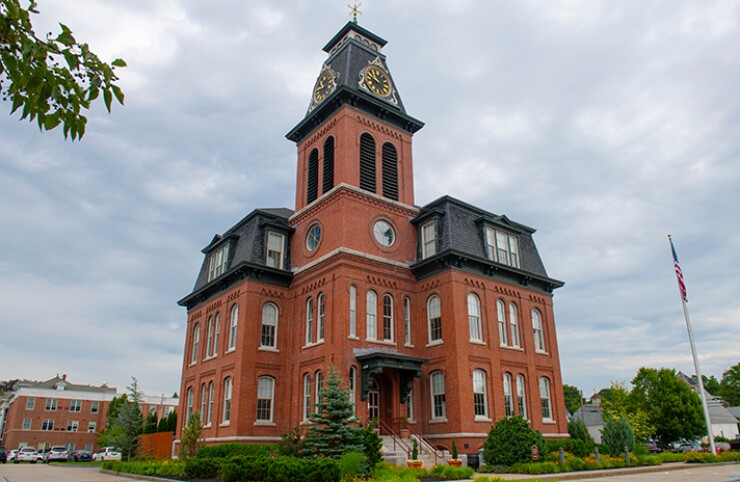New Hampshire case could upend its education funding
3 min read

New Hampshire faces questions familiar to many states: whether it’s funding schools enough and whether its method of funding is acceptable.
But the state’s hostility toward creating statewide income or sales taxes and legal precedents add some wrinkles.
Challenges to the state’s education funding worked their way through the courts until a Superior Court judge
New Hampshire’s appeal contends $4,100 is the correct number, but its reasoning lacks evidence, according to Zack Sheehan, executive director of the NH School Funding Fairness Project, one of the plaintiffs in a second Supreme Court case.
“They had a full three-week hearing last May, [in which] our commissioner of education, Frank Edelblut, was on the stand for a few days, and said repeatedly that he didn’t know how much an adequate education costs, and his department had never studied it and had no intention of studying it,” Sheehan said. Edelblut “basically just said, ‘It’s not my job to know how much it costs, it’s the legislature’s job.'”
When a town’s SWEPT funds aren’t sufficient, and the state’s contribution doesn’t fill the gap, it must raise property taxes. This means residents of poorer towns pay more taxes to get the same education as wealthier towns. A coalition of those towns made this argument in the second lawsuit, Steven Rand et al v. State of New Hampshire. Ruoff sided with the towns.
But Mark Decoteau, the chair of the Coalition Communities 2.0 — an organization of “donor towns,” which generate more than sufficient SWEPT revenues and originally had to send the excess to “receiver towns” — argued the previous system was equally unfair. The Coalition 2.0 joined New Hampshire in appealing Ruoff’s Rand verdict.
“I’m the town manager of Waterville Valley,” Decoteau said. “Waterville Valley is a ski resort and town in the central part of New Hampshire. We’ve been a part of the Coalition Communities because we would be a donor community.” The excess SWEPT funds are “currently being used for education here in our communities, and if we have to send that money in to be redistributed … that doesn’t mean education costs for our community are going to change.”
If they’re forced to turn over the excess funding, which is currently used for other educational purposes, the donor towns would either have to cut education funding or replace the excess SWEPT with local property taxes, Decoteau said. “So it’s going to be the same situation in reverse.”
The plaintiffs will file their arguments in the Supreme Court cases on Sept. 30 and Oct. 7, and oral arguments will begin later this fall, according to the NH School Funding Fairness Project.
If the state Supreme Court upholds the Superior Court’s rulings, the state would have to increase its grants to schools and change its education funding system, either by reverting to the original SWEPT system or changing its school funding model altogether.
New Hampshire will likely have a lot of flexibility in how it responds to the verdict, according to Karen Krop, a senior director at Fitch Ratings. The state would also have plenty of time to revise its school funding system.
“It’s rare where a court would make a decision that requires some kind of immediate, significant action,” Krop said. “Where we have seen this play out, it usually takes time, multiple years, for things to play out in terms of whether or not, or how much, a state has to change its funding approach.”
New Hampshire is far from the only state facing
The political sensibilities of New Hampshire present an obstacle for any non-SWEPT system, Sheehan said: the Granite State has no statewide income or sales taxes, and there’s a bipartisan hostility toward adding any.
Although the towns in the coalition are suing to keep their excess SWEPT, the group is open to a non-SWEPT system, Decoteau said.
“The Coalition Communities does not favor one particular funding mechanism over another when it comes to an alternative,” Decoteau said.







